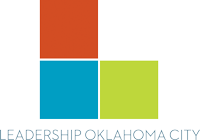So we’ve laid the foundation.
Now what?
Jeanette Gamba, LOKC Signature Program, Class I, and first Alumni Association president, recalls the next steps in the evolution of Leadership Oklahoma City
By Mary Walsh
Much as it is today, in the early years of Leadership Oklahoma City class members who were available closed each session with a social hour geared to further discuss the topics of the day. As graduation neared, a new subject was introduced: “How best can we put to use the information and networking opportunities we have been given?”
As Gamba recalls, “Our issues were really three-fold: We had developed a network of contacts with classmates and city organizations we wanted to maintain; we felt the need to become more active in the areas of Oklahoma City’s culture that we had observed; and we were intent on assuring that Leadership Oklahoma City would continue to develop more trained leaders.”
At this point in time, what was known as the LOKC Steering Committee had been converted to the Leadership Oklahoma City Board of Directors with program founders, the late Jackie Carey and Virginia Austin still very active in the program. Hershel Lamirand, who had been active in LOKC’S development as well as a member of Class I, was invited to join the board, along with other Class I alumni Rocky Duckworth, Darrell James and Jeanette Gamba.
Those four shared with the board their concerns going forward, and there was general agreement that all were worthy goals, and that those goals would be best dealt with by a separate alumni board. Further, it was decided that the most critical need was recruitment of subsequent class members who would represent the city’s geographic, ethnic and professional diversity. Quoting Lamirand now, “We were aware that a diverse class would be the magnet that would draw in others guaranteeing an on-going successful program training effective leader-graduates.”
In retrospect, Gamba heartily agrees: “Leadership Oklahoma City offers participants the ability to form a base from which to do good in the community. I came to OKC from northeast Kansas, a broadcast communications major from K State who knew absolutely no one. Getting to know my classmates, presenters and future alumni gave me the ‘civic base’ that accelerated by growth and connection to the City.
She continues, “At the time, almost no one knew what Leadership Oklahoma City was. So, our pitch to prospective class members was, ‘LOKC will train you to become a community leader and that will be good for LOKC, for you and for your city.’ And from there the word spread.
“In the beginning, we provided class members and alumni with a springboard to civic involvement. Today, the reverse is true. Metro volunteers active in the community regularly come to LOKC staff for help in finding class members and alumni to become involved. “
By the late 1980’s, as this statement below reflects, the framework was complete and the foundation was laid. And apparently it has worked: Witness the fact that 85% of our local graduates pay dues regularly. Now what remains to be discussed is where LOKC went from here.
Leadership Oklahoma City’s mission is to develop leaders who will become the most effective force of positive change in our community. Our Alumni Association will provide those leaders a forum and a resource for maintaining relationships among its membership and other community leaders and organizations, via issues-oriented programs, community service projects and social interaction.
